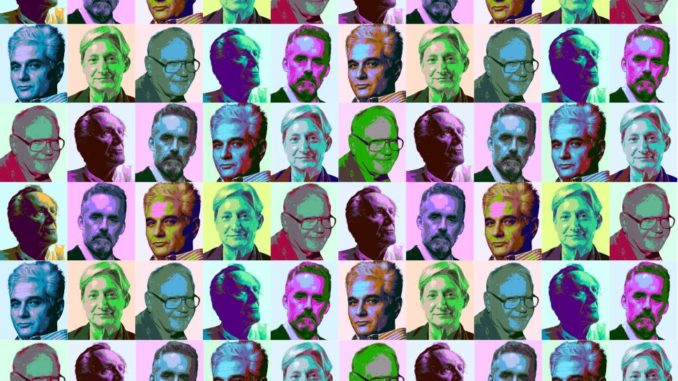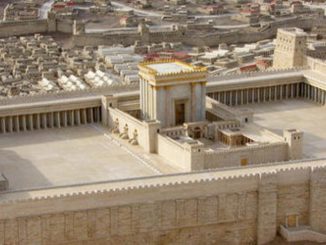
Postmodernism as a broad intellectual, social and literary movement is hard to capture and define, not more so due to the deliberate wishes of the some of it protagonists for the paradigm to remain enigmatic. As many Post modernists question the practice and prorogation of meta and universal theories grounded in frameworks of “truth”, there are obvious overlaps between Postmodernism, Philosophy and the Social Sciences. This is in terms of both the subjects of knowledge and the products of research and literature. For Postmodernism, the role, use and application of theory are not only pivotal to epistemological questions but have fundamental consequences on conceptions of reality.
One area completing overlooked is the relationship between Conspiracy Theory and Postmodernism. One tenet of Postmodernism, as the name directly suggests, is that the analysis of knowledge, society and ontology requires a framework that moves beyond the universal rationalism espoused by the enlightenment period. Enlightenment bore the mark of the birth of Modernity but is now dead. We therefore require a post-modern theory to secede the shackles of the Modern period. For the sake of brevity, this usually entails contextual sensitivity and relativism as opposed to universalism and absolute truth.
Although Conspiracy Theories have always been present throughout history, the genesis of the modern day conspiratorial phenomena is taken to be that of JFK. This saw the inception of a Meta Conspiracy Theory in which political phenomena was not what it seemed. Behind what appears to be the establishment there is a ruling elite, an organisation of individuals who act as puppet masters; the real elite behind the masquerading elite.
This undoubtedly gave rise, over the last forty years, to Meta conspiracy theories encompassing the Illuminati, The Bilderberg Group, The Freemasons and the New world Order. It then began to propagate Meta historical continuing conspiracy theories. For instance the New World Order or Illuminati does not juts control all the facets of political, economic and social activity but this plot has been deliberately designed and executed throughout history. This changes the dimension of modern conspiracy theory from being just Meta causal to being all historically encapsulating. This ushered in new questions, not just of current affairs but of the nature and validity of history itself.
This above illustrates one aspect of modern conspiracy theories subsumed by the Postmodern tradition. For contemporary conspiracy theorists, we now require a philosophy and conceptual framework that moves past the enlightenment period’s proposals of Liberalism and representative Government. This is because in the world of conspiracy theorists the latter paradigms are evidentially fallacious. We therefore need new theories to look at incidents such as JFK, the Iraq war, 911 and observable inequalities in wealth and living standards. For the exclaimer of conspiracy, old political ideologies and theories of Government, society and civil interaction are inept. Instead conspiracy theory serves as a better explanation for the post modern world.
It is these arguments advanced by conspiracy theorists to accommodate the post modern political world that paradoxically has its roots in the Postmodernist tradition. Certain aspects of Postmodernism entail a revamped romanticism, the vacuum left behind by the insufficient claim to universal truth and knowledge is filled by an epistemological tendency “that anything goes”. In a Postmodern world in which scientific claims to “true knowledge” are questioned and merely labeled as social constructionism – that it is the social process and practices of institutions such as Universities and scientists that perpetuate science as “truth”; the discourse of science for some Postmodernist is filed under oppressive regimes that perpetuate universal truth.
Instead Jacques Derrida’s notorious Deconstruction Theory comes vividly to life in that any subject matter is not just open to interpretation but the possibilities of interpretation are endless. In today’s world we see conspiracy theorists operating within this framework. Mistrust in scientific facts and the agents of established social institutions, especially those who endorse the official account of 911 is coupled with the both the ability and license to look at phenomena such as 911, the Iraq war, JFK and the banking crisis and interpret them in any way possible. In fact this is incredibly salient for conspiracy theorists. The Deconstruction Theory rings true in that the narrative of Conspiracy Theory is applicable to any phenomena imaginable. Postmodernists scream out that any phenomena are open to infinite alternative accounts and conspiracy theorists seize on the opportunity.
Ironically under the Postmodernist tradition Conspiracy Theory falls victim to its own claim and purchase of “truth” through its own self created discourse. By dismissing the “truth” presented by established institutions, conspiracy theorists explicate their own version of “truth”. However both opposing factions are discourses and Conspiracy Theory mirrors the account of Liberal Government but with its own formation of “truth”.
Postmodernism under Foucault and Derrida pronounced prophetic one liners such as “discourses forms of objects of which they speak” and thus instead of “truth” standing outside narratives and discourses, the separation is not possible as discourses themselves form “truth” and “reality” in a circular and interlocking manner.
This is precisely what the discourse of Conspiracy Theory does when proposing the “truth” behind social and political phenomena. For instance the movement called the 911 “Truth” Movement. By rejecting the modern explanation of social and political phenomena, by employing open interpretation that requires no reference to established scientific facts and by creating a discourse which forms “truth” and thus a notion of “reality”, modern conspiratorial phenomena finds its foundations in Postmodernism.
Proudly WWW.PONIREVO.COM
by Tony Sobrado



